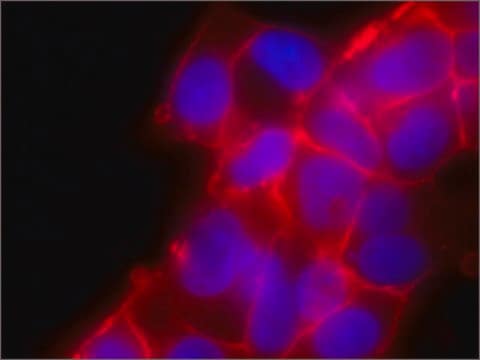MTOX1080
Kidney PTEC OCT2 KO Cells
Human female kidney, proximal convoluted tubule epithelial cells
About This Item
Produits recommandés
product name
Kidney PTEC OCT2 KO Cells,
Source biologique
human female kidney (proximal convoluted tubule epithelial cells)
Niveau de qualité
Description
1 vial
Forme
liquid
Numéro d'accès OMIM
Température de stockage
−196°C
Informations sur le gène
human ... SLC22A2(23512)
Description générale
Application
RPTEC SA7K control cells can also be used to measure compound uptake/efflux by transporters using inhibitors. Precision editing in RPTEC SA7K transporter KO cells provides a more predictive platform for compound uptake/efflux by transporters without the need for non-specific inhibitors.
RPTEC SA7K cells have been validated for use on the Mimetas 3-lane OrganoPlate®in both toxicity and barrier integrity assays( Z742750).
RPTEC SA7K cells can also be used on the AIM Biotech 3D cell culture chip in toxicity and permeability assays ( DAX01).
Caractéristiques et avantages
Qualité
Informations légales
Clause de non-responsabilité
Produit(s) apparenté(s)
Code de la classe de stockage
10 - Combustible liquids
Classe de danger pour l'eau (WGK)
WGK 3
Point d'éclair (°F)
Not applicable
Point d'éclair (°C)
Not applicable
Faites votre choix parmi les versions les plus récentes :
Certificats d'analyse (COA)
Vous ne trouvez pas la bonne version ?
Si vous avez besoin d'une version particulière, vous pouvez rechercher un certificat spécifique par le numéro de lot.
Déjà en possession de ce produit ?
Retrouvez la documentation relative aux produits que vous avez récemment achetés dans la Bibliothèque de documents.
Articles
Human renal proximal tubule epithelial cells (RPTECs) are commonly used to predict human renal drug permeability and to investigate drug efflux. We have generated transporter knockout (KO) cell lines using CompoZr® Zinc Finger Nuclease (ZFN) technology in a proprietary renal proximal tubule epithelial cell line.
Notre équipe de scientifiques dispose d'une expérience dans tous les secteurs de la recherche, notamment en sciences de la vie, science des matériaux, synthèse chimique, chromatographie, analyse et dans de nombreux autres domaines..
Contacter notre Service technique







